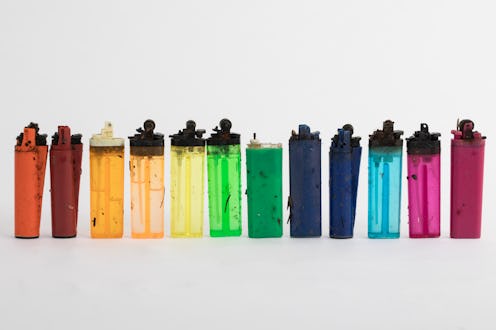News
The Facebook Fire Challenge? Still A Thing

It's seriously alarming that the Facebook Fire Challenge isn't getting less popular, but more so. It's a mystery how something so clearly harmful — lighting yourself on fire on video, posting it to social media — has become so popular, but there are two primary culprits: the influence of social media and one very inaccurate myth. Regardless, one thing is certain: Pouring rubbing alcohol (or a similar liquid) on yourself and lighting up is extremely dangerous. Period.
Cases of teens taking on the challenge have been reported everywhere from Kansas City to Cape Girardeau, Missouri, and Miami's Kendall Regional burn centers have received eight of these cases in a matter of days, including a boy who was just 11 years old. Kids have been using a variety of flammable liquids — a 12-year-old girl in Cape Girardeau was severely burned after someone poured perfume on her and lit her skin on fire — but the most popular has been rubbing alcohol.
It doesn't help that there exists a common myth that applying rubbing alcohol on your skin and then lighting it on fire won't burn you. In fact, there are even instructions online for creating fireballs using rubbing alcohol. According to Instructables.com, the person won't "burn because the fuel (rubbing alcohol) burns instead. What happens is the heat turns the alcohol into gas (it evaporates), and the gas burns, causing heat, which makes more gas to burn."
According to Fire Chief David Billings of Manchester, Conn., that explanation is far from sound.
"They end up thinking [they're] going to have a small, limited amount of flame on their bodies and in effect they end up being in a cloud of flammable vapors that do light off," Chief Billings told FOX CT.
But the rubbing alcohol myth would explain why, in each case, the participator seems to think that he or she will be immune to the fire's burn.
Another driving force for perpetuating such an asinine trend is social media, a.k.a. the 21st century version of peer pressure. For the social generation, the prospect of getting hundreds of likes and comments on Facebook can be too enticing to ignore. And when something gets slapped with a hashtag, everyone wants in on it, as if it were an expansive online cool club that anyone with Internet and a willingness can join.
Is it worth a few "likes" on Facebook? Um, no, a thousand times no.
- According to firefighters who spoke to Jacksonville's News 4 Jax, it only takes 200 degrees to cause second-degree burns, which many of these challenge victims have experienced.
- Serious second-degree burns are not only extremely painful, but may require skin grafting and can cause permanent scarring.
- A second-degree burn can take months to heal.
- If you suffer more serious, third-degree burns, it's possible that the affected area will never heal and may even require amputation.
- A burn victim does not only suffer injuries externally; the victim is also breathing in smoke and toxic fumes, which could cause respiratory burns and is the cause of 50-80 percent of fire-related deaths.
- The Facebook Fire Challenge could kill you.
Image: stuartpilbrow/Flickr